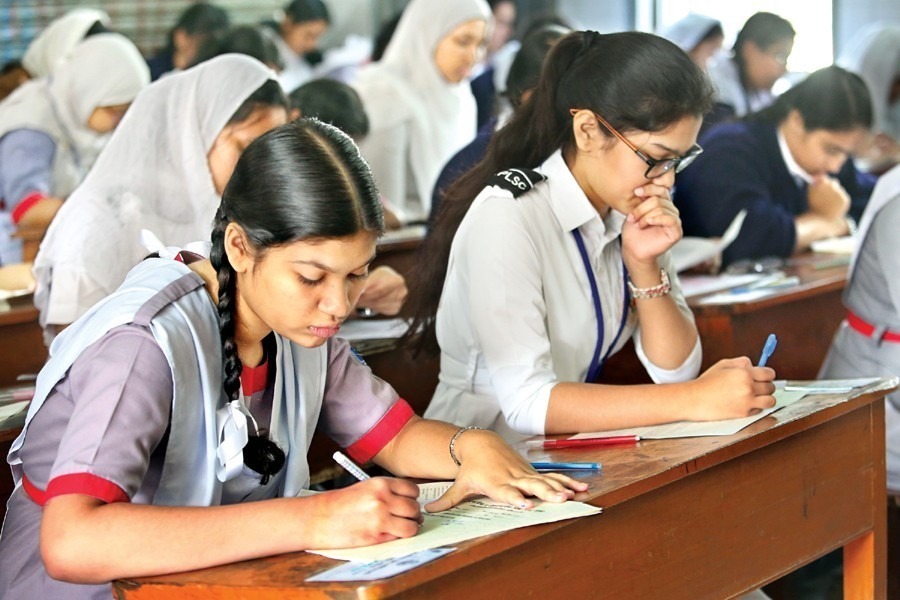
Published :
Updated :

The results of this year's Secondary School Certificate (SSC) and equivalent examinations have broken the trend of consistently high scores observed over the past 15 years, registering a significant decline in academic performance across all education boards. The overall pass rate dropped to 68.45 per cent from last year's 83.04 per cent, a sharp decrease of 14.59 percentage points that caught students, parents, teachers and policymakers by surprise. The number of candidates achieving the highest-grade GPA-5 also fell significantly, with 139,032 students attaining this distinction compared to 182,129 in the previous year. Out of approximately 1.9 million students who sat for the examinations, 600,660 students did not pass. The only positive trend that remained consistent with previous years is that girls once again outperformed boys with their pass rate of 71.03 per cent compared to 65.88 per cent for boys.
One might have expected that such a sharp decline in examination performance would provoke public outrage, as it could suggest a broader deterioration in the quality of education delivered by schools. However, contrary to that expectation, public sentiment has largely accepted the results as a more accurate and honest reflection of students' academic standing. There is a specific context that helps explain this shift in perception. This year's SSC results are the first to be released following the political transition of August 2024, which brought an end to the Awami League's prolonged tenure in power. During that period, an unofficial policy is believed to have been in place whereby examiners were encouraged, if not pressured, to inflate scores in order to present an image of steady progress in education. The consequence was a generation of students whose results often overstated their actual competencies. Now, under a new political dispensation, education boards have returned to strict merit-based evaluation, revealing the true extent of students' academic preparedness. Khondokar Ehsanul Kabir, chairman of the Dhaka Education Board and president of the Inter-Education Board Coordination Committee, stated unequivocally that answer scripts in this year's assessment were marked without any leniency, and no instruction was given to adjust results for the sake of optics.
This return to integrity must be continued. If the stricter standards applied this year are relaxed in future years, the 2025 SSC examinees will unfairly bear the burden of this transitional phase, while their predecessors and successors would not be subject to the same level of scrutiny. The government and education boards must regard this year's results as a necessary course correction and remain committed to a path of transparency and merit-based assessment. Future candidates of the SSC and Higher Secondary Certificate (HSC) examinations must be made to understand that the era of grace marks and inflated scores is over, and that success now depends on genuine academic effort and thorough preparation.
While this year's results showed where educational standards really stand, they also present an opportunity to confront long-standing deficiencies in teaching and learning. Notably, the SSC results exposed both the widespread struggles in teaching core subjects like English and mathematics as well as students' lack of seriousness with studies. Policymakers must address both challenges through comprehensive reform. Greater emphasis should be placed on cultivating student engagement and discipline, alongside strengthening teacher training, enhancing classroom interaction, and investing in educational infrastructure including digital learning tools. Only then can this sobering moment serve as the starting point for genuine improvement in the country's education system.


 For all latest news, follow The Financial Express Google News channel.
For all latest news, follow The Financial Express Google News channel.